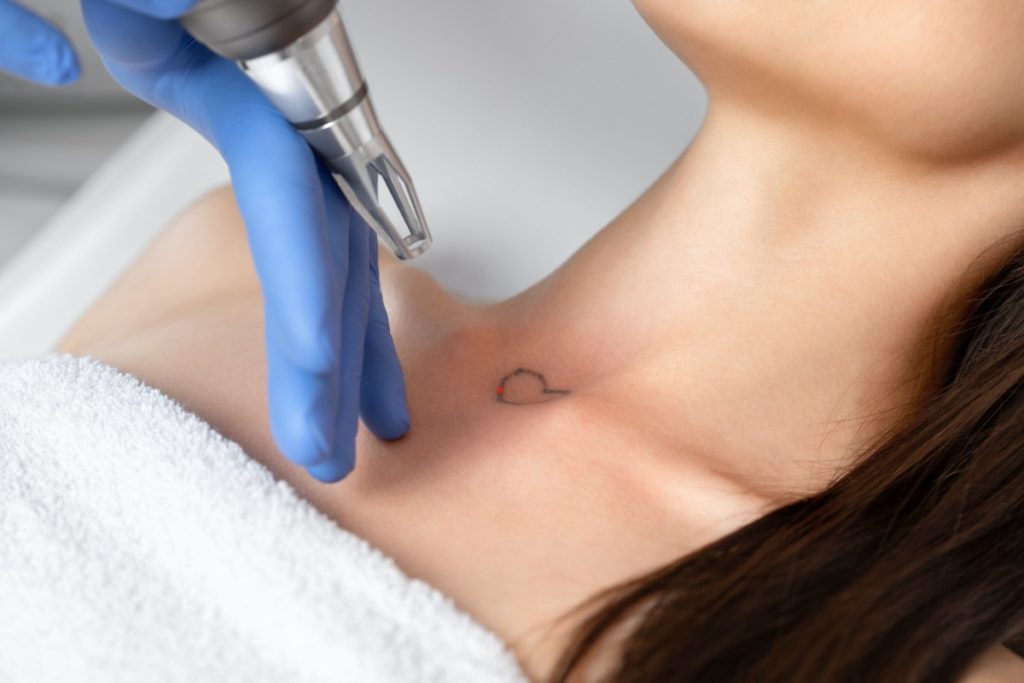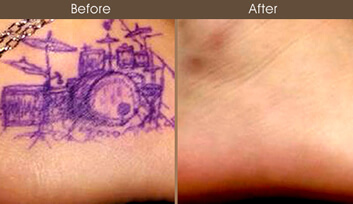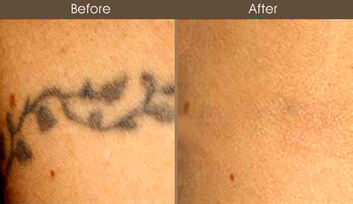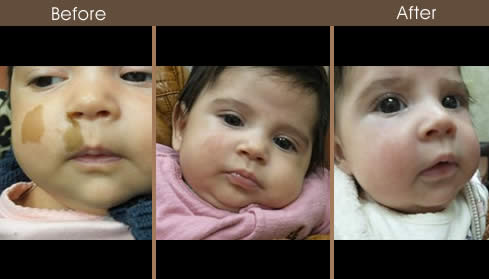Tattoo Removal
Conveniently located to serve the areas of New York, NY

Today’s advanced laser technology can reduce unwanted skin pigmentation caused by a variety of conditions, including birthmarks, tattoos, and melasma, a brownish skin discoloration usually found on sun-exposed areas of the face. During treatment, laser light is absorbed by the targeted natural pigments or tattoo inks, breaking up the unwanted pigment into smaller molecules, which are then absorbed by the body. The result is less pigmentation in treated areas, and smoother, clearer looking skin.
Treatment
Today’s advanced laser technology can reduce unwanted skin pigmentation. During treatment, laser light is absorbed by the targeted natural pigments or tattoo inks, breaking up the unwanted pigment into smaller molecules, which are then absorbed by the body. The result is less pigmentation in treated areas, and smoother, clearer looking skin.*


For tattoo removal, the PicoSure® laser is the latest, most advanced, precise, and effective laser used to diminish the appearance of unwanted ink and to obtain smooth, unblemished skin.* True to its name, the PicoSure® laser delivers picosecond pulses of energy to the skin’s surface, a rate of one trillion pulses per second. Traditional tattoo removal uses only nanosecond technology, so PicoSure® produces one thousand times more pulses per second, which can achieve better results with fewer treatments and less downtime than nanosecond technology.
Expectations
Since no one laser can treat everything, laser therapy must be tailored to the individual patient and circumstance. At Plastic Surgery & Dermatology of NYC, we have an extensive inventory of lasers that may be used to treat a wide variety of skin types and conditions, including the PicoSure® laser for tattoo removal. Dr. Levine will meet with you to assess your condition and determine the best laser treatment or combination of laser treatments for your specific needs.
Results
For laser tattoo removal, results may vary, depending on the ink colors used in the tattoo. Red inks and darker colors such as blue, black, and green typically respond very well to laser treatment. Other colors, such as yellow, may be more difficult to remove, although improvement will be noticeable. At Plastic Surgery & Dermatology of NYC, we have four different lasers that can be used for tattoo removal, each designed to target specific ink colors. In most cases, tattoos can be faded by 95% or more.* Laser treatment of birthmarks is also, generally, very effective. While certain birthmarks may recur months or years later, treatment can be repeated to remove returning pigmentation. Laser treatment of melasma may require a combination of lasers, as well a proper topical skin care regimen. Dr. Levine’s laser and skin care expertise enables her to successfully treat melasma, despite its complexity, in a wide range of skin tones. Periodic maintenance procedures to achieve the best results may be advised.

Laser tattoo removal is performed on an outpatient basis in our offices. Most patients tolerate the procedure easily, describing a light snapping sensation during treatment. For sensitive patients, we can apply numbing cream before the procedure to ensure maximum comfort. You can resume your normal activities immediately after treatment.
Treatment Duration
The number of treatments needed for laser tattoo removal will depend on the concentration, depth, and type of tattoo ink. On average, most professional tattoos can be removed in a series of 6 to 8 treatments, spaced about 4 to 6 weeks apart, while amateur tattoos usually require 3 to 4 treatments.* Treatment for melasma and birthmark removal may require a combination of different lasers to achieve the best results. Dr. Levine will meet with you to assess your condition and determine what treatment schedule will best meet your specific needs.
Contact
Dr. Elie Levine will be happy to meet with you to discuss post-bariatric weight loss procedures. Please call our office at (212) 988-1800, or make an appointment online for a personal consultation in our New York City offices.

